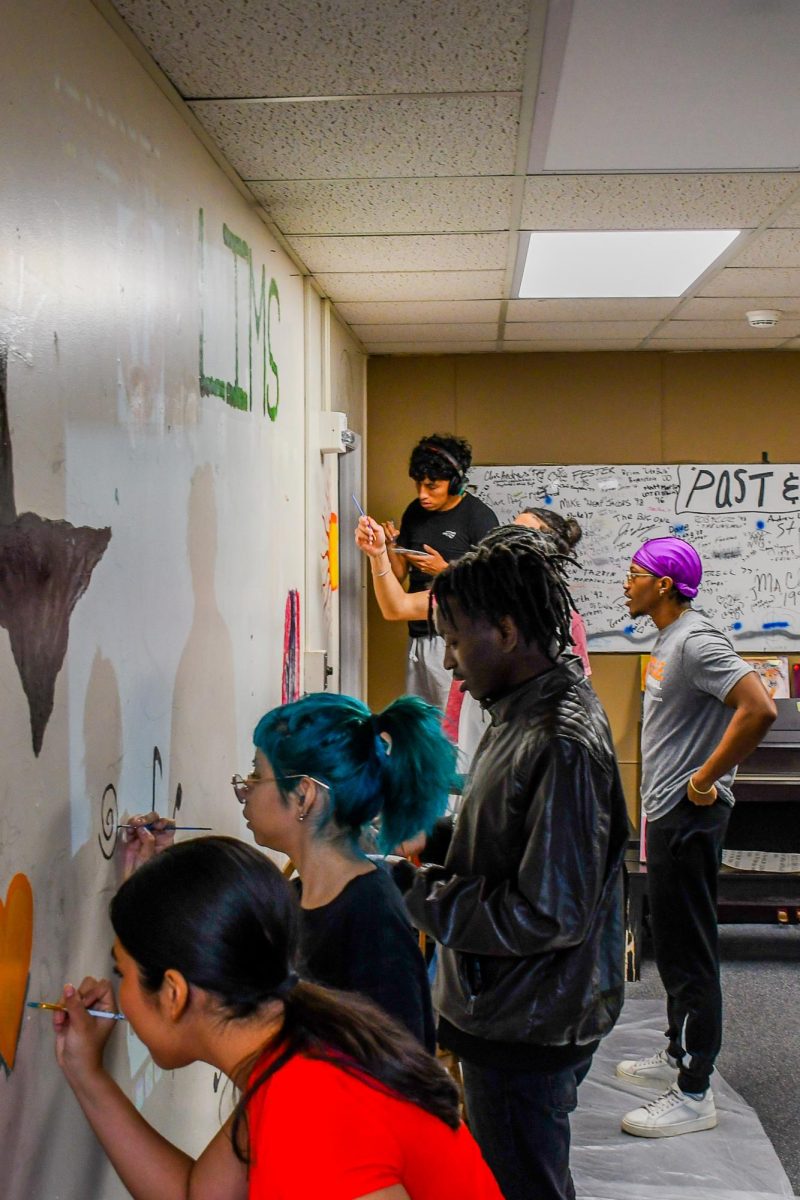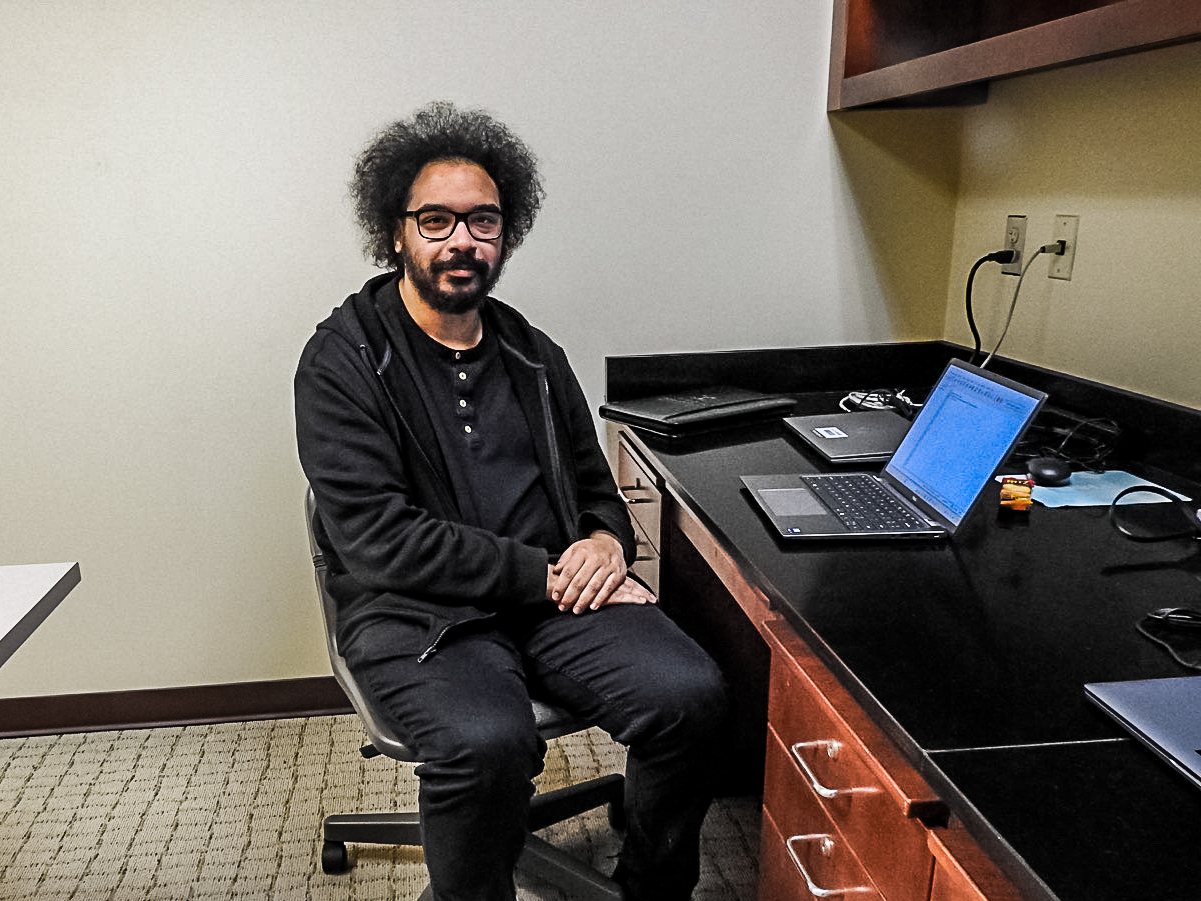By Christina Shaman ’16 and William Gordon ’17
On her first day at Lafayette, Brianna Braswell ’16 almost packed up her car and went back home to Washington, D.C. Overwhelmed by the new environment, she wandered aimlessly around campus until she ran into a senior Posse member, who made her feel at home.
For Braswell, Posse, a full-tuition leadership scholarship for students from public high schools, is about more than the money she receives. It is about the support.
The Posse Foundation, which is a national program with 55 partner colleges and universities in 23 states, currently has two chapters at Lafayette: Posse D.C. and Posse New York. But reports from a presidential working group at Lafayette were released this December, recommending that the school reallocate funds away from Posse D.C. into need-based financial aid. These recommendations are still under consideration by the college.
The recommendations, which included reallocating the money the college spends on Posse D.C. to need-based financial aid, came from one of the three presidential working groups at the college—the Presidential Working Group on Financial Aid, Student Profile, and Tuition. The working group also proposed the idea of decreasing the amount of money allocated to Marquis Scholarships.
At the general faculty meeting on Feb. 2, the big-picture goals proposed by the three presidential working groups—increasing enrollment size, moving toward need-blind financial aid and technical faculty salary adjustments—were approved. But the faculty did not approve the specific ways of implementing these goals.
Still, in order for the college to officially move forward with broad goals, they must be approved by the board of trustees, which meet next week. The specific details of implementation, however, do not need to be approved by the board. For more information about this process, see the section below this article.
The specific recommendations by the working groups are still being talked about among the faculty, which Provost Abu Rizvi said was an anticipated part of the process. They are also being looked at by the Enrollment Planning Committee (EPC) at the college.
According to Byerly, these recommendations do not have to be approved for several months. But if they are approved and implemented, they will not affect current Posse students’ scholarships.
The idea is to make the college more accessible financially to students of diverse backgrounds, who may not otherwise be able to afford full tuition.
With the money saved if the college phased out Posse D.C., it could be more accessible for students of diverse backgrounds through greater financial aid., said associate professor Markus Dubischar, who is also the chair of the EPC and was on the Presidential Working Group on Financial Aid, Student Profile, and Tuition. This is because many Posse scholars would not qualify for full scholarships without the Posse program, Dubuschar said.
One additional motivation given behind the recommendation to phase Posse D.C. out in favor of need-based financial aid was that admissions could recruit more students on their own from D.C. than the 10 students that come to the college each year through Posse.
The reason the presidential working group recommended reallocating funds from Posse D.C., rather than Posse New York, is because admissions has had an easier time getting non-Posse students interested in Lafayette from New York through the Posse program, Byerly said.
But according to Posse scholar JJ Wanda ‘16, Posse D.C. does have reach beyond the ten annually selected Posse scholars. Wanda said that there were 1,600 students nominated for Posse from D.C. in the year that he came to Lafayette. This means that the school is getting its name out, not only to ten people through the Posse program, but to over 1,600, he said.
If the school got rid of Posse D.C., they would lose not just ten people but 1,600, Wanda said. He added that none of the Posse D.C. scholars he knows had heard of Lafayette before Posse.
One way that Lafayette could get more students from the D.C. area interested in the college without Posse is through the use of various community based organizations (CBOs), Dubischar said. But, he said, these CBOs do not have the same mentorship programs and structure as Posse.
Professor and Posse D.C. 5 mentor Michelle Geoffrion-Vinci said that the college should be focused on more than just attracting and recruiting diverse students.
“It should be about bringing students in and keeping them here,” she said, adding that Posse is a highly successful way of doing that.
Geoffrion-Vinci said that the potential benefits the college could gain from transitioning from Posse D.C. to need-blind financial aid could be “well worth the cost.” But she said that if the college does decide to transition away from Posse D.C., there should be a strong plan in place to provide the resources to students that would be lost with the removal of Posse, including the Posse mentorship program.
Although Posse is not a scholarship only for minority students, it does bring diversity to the college. The value of the Posse mentorship program for many is that it provides resources to these students of diverse backgrounds when they might otherwise feel excluded from the campus community.
D’Agostino said she is concerned that Lafayette does not have the resources currently in place to provide a welcoming environment for all students without the Posse program.
“The idea that we could accept any student that we have a passion for and that has a passion for us despite their level of need, I mean, that feels like a really great thing to aspire to,” D’Agostino said. But, she said, the Posse program adds a great deal to students’ feelings of inclusion at Lafayette and getting rid of Posse D.C. too soon could hurt the retention of students of color at the school.
Posse D.C. scholar Charles Evans ‘19 said that just recruiting more brown and black bodies to campus will not solve Lafayette’s diversity issues.
“Diversity is more than just skin color,” Evans said. “Diversity is ways of thinking. Diversity is inclusion. Diversity is cooperation.”
Byerly said that the college would look at implementing mentorship programs for students if Posse D.C. was phased out, adding that “if [the college is] successful in bringing an even more diverse student body in the future, we want to make sure there’s lots of support for those students.”
While the working group recommended reallocating the money the college spends on Posse D.C. to need-based financial aid, the exact breakdown of the costs saved is unclear to The Lafayette at this time.
According to Vice President of Enrollment Management Greg MacDonald, who was also the chair of the Presidential Working Group on Financial Aid, Student Profile, and Tuition, the college currently budgets a little over $40 million in total financial aid. Specific numbers such as the costs of Marquis Fellowships and Scholarships and the Posse program were not released to The Lafayette.
“It would not be appropriate to share more specifics in the press before we have had an opportunity to discuss our internal proposals with the Board of Trustees,” MacDonald wrote in an email. Director of Financial Aid Ashley Bianchi and Byerly also declined to comment on specific numbers for similar reasons.
Provost Abu Rizvi confirmed the $40 million budget for financial aid and said that reallocating money from Posse D.C. and Marquis Scholarships and Fellowships would account for only a quarter of the total budget needed to implement need-blind financial aid.
Dubischar said that the Posse program costs the college in expenses it pays for recruitment, the PossePlus retreats and Posse mentors—faculty members who either receive a stipend or a course release in return for their role as mentors.
Professor William Miles, who has been at Lafayette for 26 years and is retiring at the end of this semester, has been a Posse mentor for the last four years. He said that when he got a course release one semester, the chemistry department just made one of his classes larger–which didn’t cost the college anything.
Multiple sources told The Lafayette that the working group presented the cost savings for the college if it phased out Posse D.C. as about $500,000, but it is unclear how that number breaks down into different expenses for Posse, or what the time frame is on those cost savings. Full tuition for 10 students at the college is equal to about $480,000 per year, discounting room and board fees.
Looking at how Posse benefits students financially, Dubischar said that Posse does not benefit members of the campus community who are not enrolled in the Posse program–only those 20 Posse members that come to the college from Posse D.C. and New York each year.
D’Agostino disagreed. The Posse operating budget is not only for Posse, but also for other students, who attend the Posse Plus retreat, intellectual events and social programs on campus, she said.
Visiting assistant professor Joel Shelton wrote an open letter to Byerly, Rizvi and the EPC describing the diverse perspectives and discussions Posse students bring to the classroom and to the Lafayette community. In the letter, he wrote that he has “no direct stake in the future of the college,” since he has accepted an assistant professor position at Elon University and is leaving Lafayette at the end of the semester.
The direction to move toward need-blind financial aid and phasing out Posse D.C. are not necessarily the same, Shelton wrote. Instead, he wrote that because the college has such a large endowment, it is more than likely that money for both programs can be found.
“While money is not unlimited, it is to some degree fungible, and I know that the college has at its disposal a talented and creative group of administrators who are capable of finding a third way,” Shelton wrote.
D’Agostino said that she was not present when the recommendation to phase out Posse D.C. was proposed and did not find out about it until after the reports were released. Students from Posse said that they were not told directly by administration about the recommendation, but had to find out information from later meetings held by D’Agostino.
Braswell said that she and her fellow Posse scholars realize that reallocating funds from Posse D.C. towards need-based financial aid is only a recommendation for now, and that it is not immediate.
At the same time, she said, “There’s still a sense of urgency in our minds and at the very least we want to do things to show people what Posse is, what it does and the benefits of it.”
“Instead of getting to that boiling point where it could be taken away and then doing something about it, we want to kind of just start now to get it in people’s minds,” she added.
Members of Posse D.C. and Posse New York will be holding an event tonight from 4:30 to 6 p.m. in the Marlo Room as a way to educate students, faculty and the administration about the value of the Posse program. According to Braswell, the group has sent a personal invitation to the administration to attend the event.
How the approval process works
There were three presidential working groups looking at issues relating to the future of the college:
- The Presidential Working Group on Faculty Salaries
- The Presidential Working Group on Enrollment Size
- The Presidential Working Group on Financial Aid, Student Profile and Tuition
Each of these working groups consisted of faculty members, administrators and two trustees. They have been working on their reports and recommendations since the fall, and completed them at the end of the fall semester.
These reports were then sent out to the faculty committees that had the most to do with the topics of the reports. The report from the Presidential Working Group on Financial Aid, Student Profile and Tuition was sent to all of the faculty committees that look at issues discussed in the report for what is called “significant advice.” Essentially, “significant advice” is a faculty committee’s recommendations and suggestions to the President about the working group’s report.
The Enrollment Planning Committee, chaired by Professor Markus Dubischar, was one the committees that looked at the Presidential Working Group on Financial Aid, Student Profile and Tuition.
The working groups’ reports and recommendations were then discussed at the first all-faculty meeting of the semester on Feb. 2. At the meeting, the faculty approved the three main ideas of the working groups:
- Follow a particular set of benchmarks for faculty salaries
- Increasing enrollment size at the college
- Focus more on need-based financial aid, with the goal of becoming need-blind
But the faculty did not approve all of the specific ideas discussed in the working groups’ recommendations. These include the Working Group on Financial Aid’s recommendation to reallocate the money the college spends on D.C. Posse to need-based financial aid programs, and increasing the amount of Marquis Fellowships and decreasing the amount of Marquis Scholarships the college gives out.
Before any of these changes take place, the Lafayette College Board of Trustees, which meets next week, must approve the three main ideas mentioned in the bullet points above. The Board of Trustees does not, however, approve the specifics of implementing these goals, like phasing out D.C. Posse and cutting back on the number of Marquis Scholarships. Those decisions are left up to the administration, with input from the faculty.
Correction: This article originally incorrectly reported that the Posse scholarship is for students from inner-city public schools. Posse D.C. is not aimed specifically at inner-city schools. It recruits from schools across the D.C., Maryland and Virginia area. The article has been edited to reflect these changes.





















































































































Charnelle P (Posse DC 4) • Feb 15, 2016 at 1:21 pm
Kudos to the duo who wrote this article. It is very well informed and has a variety of opinions and knowledge. Might want to strike the note about Posse aiming for “inner city schools” though. My school is smack in the middle of the suburbs.